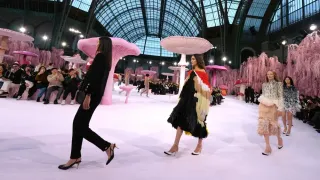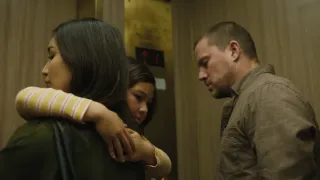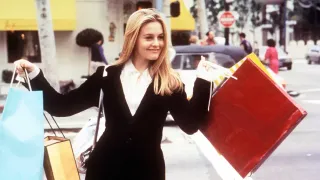April 22, 2017
Gay Comic Eddie Sarfaty Heads Back to Oasis
Jim Gladstone READ TIME: 5 MIN.
In December, Eddie Sarfaty was in town to do a fifteen-minute stand-up set at Kung Pao Kosher Comedy, San Francisco's annual showcase of Jewish comics in a Chinese restaurant on Christmas. His set was not especially Jewish.
On Monday night, in a benefit performance for the Richmond/Ermet Aid Foundation, he'll be back with a full hour at Oasis. It will not be especially gay.
"One of the things I love about stand-up comedy," says Sarfaty, who's been playing clubs, colleges, and cruises for more than 15 years, "is that it's all about being who you are. You don't have a playwright, you don't have a director. It's you."
Like many comics, Sarfaty's life is a source of creativity.
"I grew up in a New York Jewish family and still live in New York, so that's a part of my material. I'm gay, so sure, that's an element of my act. But mainly it's human. People understand stress, people understand feeling like an outsider, people have parents, and partners. I'll talk about anything, family, relationships, pets, politics."
Asked if he adjusts his set for different audiences, Sarfaty said, "There are probably five or six jokes that I don't tell when I'm performing for a mainly straight audience. It's not fair to the audience if they're not likely to get certain references. But for the most part, straight people are appreciative when I do material about gay stuff. In a comedy club, usually all the guys who come on are straight and they complain about their girlfriends. So it's refreshing when I come on, even if the audience isn't gay."
Sarfaty is particularly looking forward to his Oasis show because he's been away from the mic since February, holed up at an artists' retreat in Arizona, from which he spoke to Bay Area Reporter last week, before finally heading home to New York just last weekend.
"I'm working on a novel," he explains. "Writing can be so isolating. I've been staring at a computer for the past three months."
While his work-in-progress �-a quirky multi-generational family saga influenced by Jeffrey Eugenides' Middlesex and Katharine Dunn's Geek Love �- is Sarfaty's first serious attempt at fiction, he published a well-received collection of humorous essays, Mental in the Head, in 2009.
"When it came out," he recalls, "I had no illusions of being a writer. But the editor saw me doing stand up in Provincetown and asked if I could expand some of my anecdotes to turn them into a book. It sold well enough that I was asked to write another essay collection, but I felt like I'd used my best stories and didn't necessarily want to try to find more at the bottom of the barrel." (Augusten Burroughs, please take note).
The adventures in family life, dating, public transit and other mundanity that Sarfaty recounts in his essays share a generous, sweet-natured tone that also informs his stand-up. But Sarfaty says that writing jokes is markedly different than writing prose.
"The writing that's closest to stand up is poetry," he said. "Brevity really is the soul of wit. You want each word and syllable to serve a purpose. You build a rhythm, you take a turn, and then you spring a surprise.
"The quality of the writing is really important in comedy," says Sarfaty, who teaches workshops for aspiring comics. "Especially when you're new to it and people don't know you as having some particular persona that you can work for laughs. The jokes have got to be written well."
Sarfaty's inspirations span the years of comic legends.
"I have such admiration for Henny Youngman and the old Borscht Belt style of comedy," he said. "One-liners are so elegant, they turn on the last word. If I tell a story on stage, it really needs to be a series of related jokes, with individual punchlines.
Eddie Sarfaty
"I put a lot of work into jokes before they make it into my act. I'm not particularly fast at generating material. Writing my novel, I get to write and rewrite and refine, over and over. For stand up I need to write something and try it out live. And if it doesn't go over well, I can't try again right then. I have to wait, and think about why it didn't work and try the next version another time."
Sarfaty says he tries to work in a few new jokes at each performance, "but I don't like the idea of throwing everything away and doing an all new set. The career is hard enough without complete disasters.
"If a single joke doesn't work, the audience is okay with you just being human. They really want you to do well. If a comic is dying onstage, I think that 99% of the audience is envious -they'd rather be dead than have to watch it. Watching a comic flop is a horrible experience."
Sarfaty finds that the slowly accreting sprawl of novel-writing is a radically different experience than writing jokes.
"I started with one little moment of thought, about the repercussions that happen when people don't fit into their familes. And that was a point of departure for me. I realized I wanted to write about a WWII Jewish family escaping from Poland and put typical strains of family dynamics against that background.
"But it's led me down so many roads. I've read a lot of history: the first third of the book is set in Finland, where the Finnish Jews fought alongside the Germans against the Russians, who were seen as a bigger threat early on. And then I made the daughter of the family a taxidermist who buys euthanized cats, articulates their skeletons and dresses them as Day of the Dead Dolls. Another character runs a flea circus. So I've been researching and interviewing people about all these different subjects."
Unlike writing his first book, for which he had a contract and deadline to motivate him from the time he started, Sarfaty has taken great pleasure in working on his novel at his own self-determined pace. He's been at it for four years now, with no sense of the flop sweat that can accompany writing or performing stand-up.
"The worst thing that could happen is that I'd end up self-publishing this book instead of selling it to a publisher. I've really been enjoying writing it, and I've learned so much."
Eddie Sarfaty @ Oasis; The funny gay comic brings his "Chucklef*cker" show to SF. $25-$45. Monday, April 24, 7:30pm. 298 11th St. www.sfoasis.com






